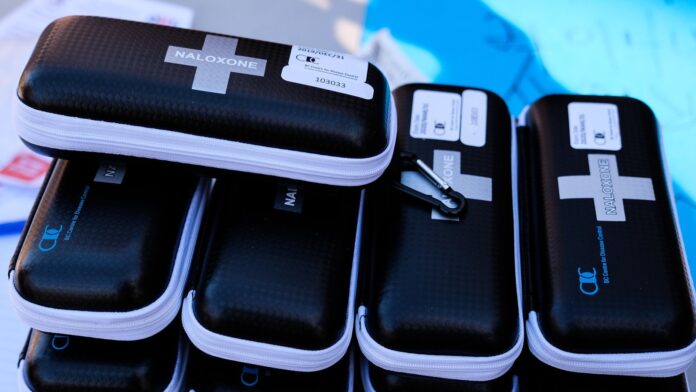The British Columbia government is distributing 1,600 naloxone kits to public post-secondary institutions in the province.
The province said free nasal naloxone is available in designated cabinets across campuses, student health clinics and residence buildings.
It said the kits are usually located near emergency phones or automated external defibrillators, making life-saving medication quick and easy to access in case of an overdose.
“Every life lost to the toxic-drug crisis is a profound tragedy for our communities, and I expect all public post-secondary institutions to take steps to protect students,” said B.C.’s post-secondary education and future skills minister Jessie Sunner in a statement Thursday.
The initiative is part of the work of the post-secondary overdose steering committee, which was formed in May 2024 to provide guidance to institutions on reducing the risks and harms of the toxic drug crisis.
“At Simon Fraser University, we are proud to work alongside the Province and our post-secondary partners to strengthen overdose prevention and response across our three campuses,” said Dilson Rassier, SFU provost and vice-president academic in a statement. “The toxic-drug crisis knows no boundaries and expanding access to nasal naloxone, along with implementing sector-wide guidelines, are vital steps to protect our community.”
“The toxic-drug crisis claims lives across B.C. every day, and university campuses are not immune,” said Thompson Rivers University president and vice-chancellor, Airini. “At TRU, we are acting to change that by ensuring naloxone is within reach, by training our community to respond and by talking openly about substance use and overdose.”
The steering committee was formed after the death of University of Victoria student Sidney McIntyre-Starko January 2024. The 18-year-old was found to have died from an accidental fentanyl exposure in a dorm room.
An external review by retired Abbotsford police chief Bob Rich found the response to the medical incident was “was not well coordinated or thought out,” despite UVic having harm reduction and response procedures in place.
McIntyre-Starko’s death prompted calls from her parents and others for improved awareness and training around overdoses and other health emergencies on campuses.
B.C.’s post-secondary overdose steering committee released new guidelines for public sector institutions in September 2024, including recommendations to improve overdose-response protocols.
UVic also released a new Substance Use Health Strategy ahead of this school year, describing it as a holistic approach that includes “awareness, early intervention, harm
reduction, health-promoting policies and practices, and coordinated response systems.”






